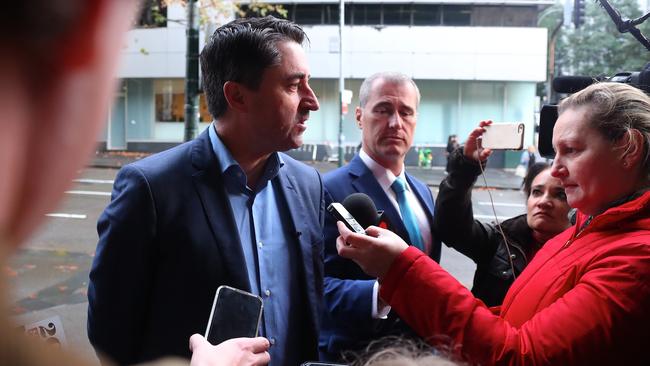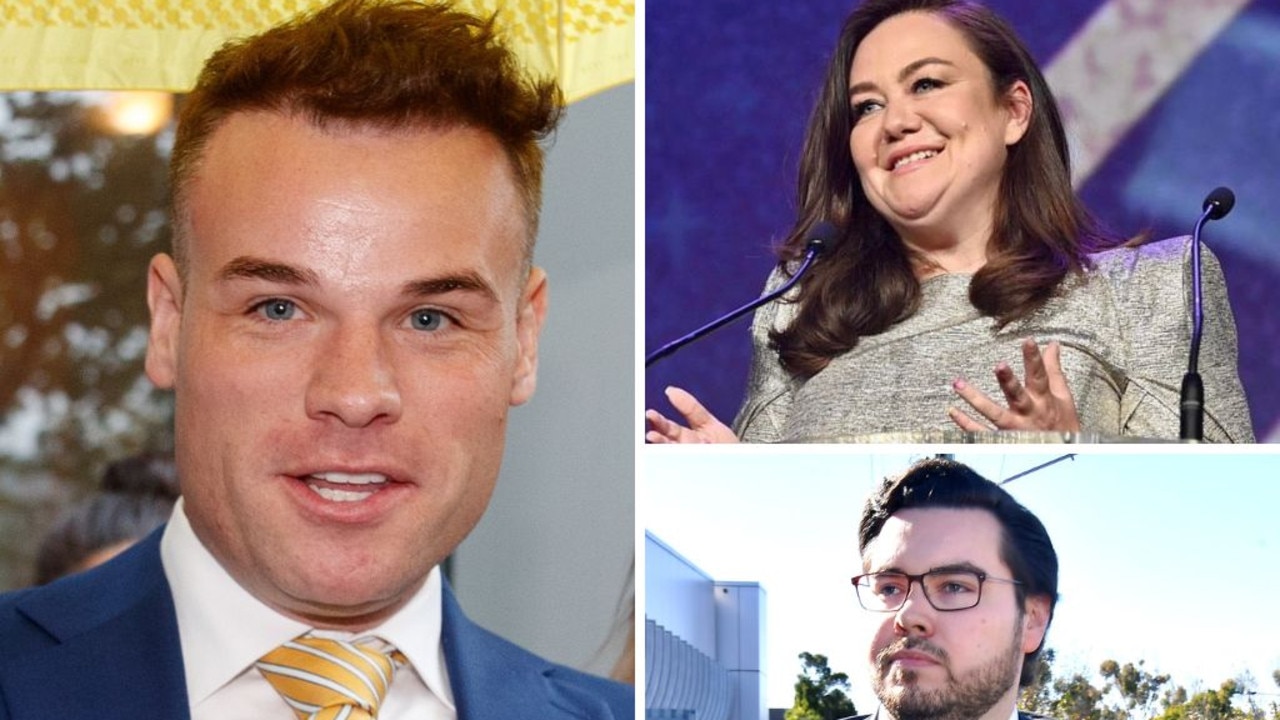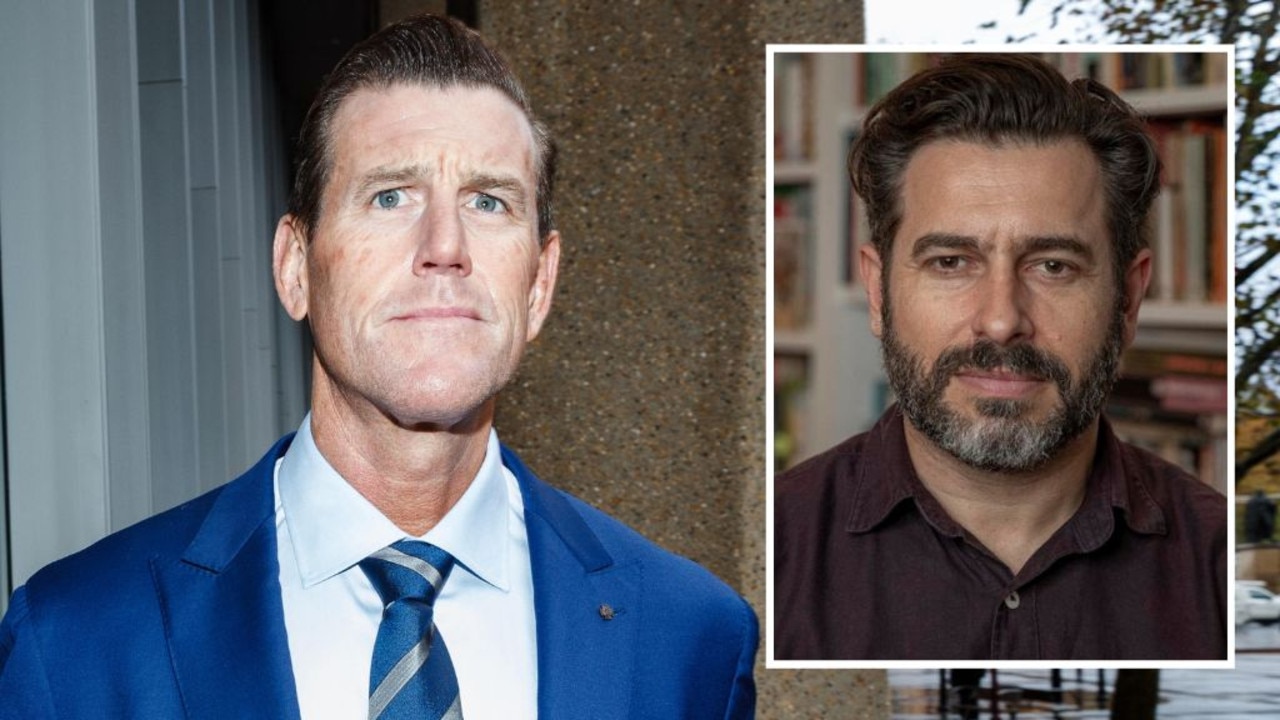AFP raids chilling investigative reporting, say ABC, Nine
Federal Police raids have cooled the public’s willingness to participate in investigative reporting, media executives say.

Journalist sources have “freaked out” and in some cases withdrawn from participating in stories following the Australian Federal Police’s high-profile raids, ABC and Nine executives say.
At a public hearing on press freedom in Sydney, ABC news director Gaven Morris said while the broadcaster was “assiduous” on working thoroughly on stories involving national security, the raids have meant it can no longer “absolutely” guarantee a source would be protected. Some sources had since withdrawn from participating in stories, he said.
“Sources have withdrawn from the story and said, ‘I’m not going to be involved anymore. This is not worth the risk to me anymore’,” Mr Morris said.
“And sometimes I think that might be what the authorities here want: fewer whistleblowers and fewer revelations, and less information coming out from behind a curtain of confidentiality within government and within the bureaucracy. I don’t think this is healthy for our democracy.”
In June federal police undertook raids on the ABC’s Ultimo headquarters in Sydney and at the home of News Corp journalist, Annika Smethurst in relation to stories on the conduct of members of the Australian Defence Force.
Earlier on Tuesday News Corp Australasia executive chairman Michael Miller called for a raft of changes to legislation to protect journalists, telling the hearing Australians were at risk of losing their democratic freedoms.
Group executive editor of Australia Metro Publishing at Nine James Chessell said that as a result of the raids, a whistleblower had almost pulled from an investigative story being written by Adele Ferguson.
“To give you a concrete example … when the (AFP) raids occurred, Adele Ferguson — one of our better known investigative reporters — was dealing with a whistleblower who wanted to expose the cosy relationship between the auditor EY and National Australia Bank; a story that has already now resulted in a parliamentary inquiry,” Mr Chessell said. “
“Adele said, quote, ‘The whistleblower freaked out after the raids happened’ and almost decided not to go ahead with working with her on that story.
“Similarly Nick McKenzie, another one of our reporters, describes an atmosphere of huge anxiety in dealing with his whistleblowers and confidential sources after the AFP raids occurred.”
Mr Morris and Mr Chessell made the comments at the Parliamentary Joint Committee on Intelligence and Security’s hearing into the powers of police and intelligence agencies and their impact on press freedom. The hearings follows calls by the media industry in the wake of the June raids to overhaul legislation which affects the work of the journalism.
Mr Morris said the two raids had broken an important “bond” between the way the journalism industry and civil society worked together.
“When we talk to a source, we have always been able to say to them: ‘You can provide us with information and we will absolutely protect your identity and protect your wellbeing by doing that’, and that is a crucial part of so many stories that have shaped policy in this country,” Mr Morris told the inquiry.
“We can’t say that now, because we don’t know whether in telling that story, whether the Federal Police are going to come and take those files away.
“That is the bond that has been broken at the moment.
Mr Morris said there was now doubt in the mind of anyone that might want “to come forward and provide information to a journalist around an issue that might be critical to the way our government and country operates”.
Nine’s Mr Chessell also raised concerns about defamation law, which he described as having the “greatest” day to day impact on pursuing journalism.
He described the defence of qualified privilege as “almost useless”, and argued that reform was needed to fight imputations set out by people who believe they were defamed, and called for the need for a serious harm test to better assess defamation claims.
ABC general counsel Connie Carnabuci also raised concerns over defamation action timelines. “We think that there should be the introduction of a 12 month timeline on suing for online publications,” Mr Carnabuci said. “At the moment, there is no such limitation, so once a publication is up online there is the potential for someone to bring a defamation action in perpetuity.
“We also strongly agree with [Mr Chessell] in relation to the serious harm test to weed out those frivolous claims that are coming. The imputation issue … is an enormous problem. Strikeout of truth defence for lack of particulars before evidence is even put on is quite a big issue. We also think that the courts have become quite adept at working their way around the statutory cap for general damages,” she said.



To join the conversation, please log in. Don't have an account? Register
Join the conversation, you are commenting as Logout